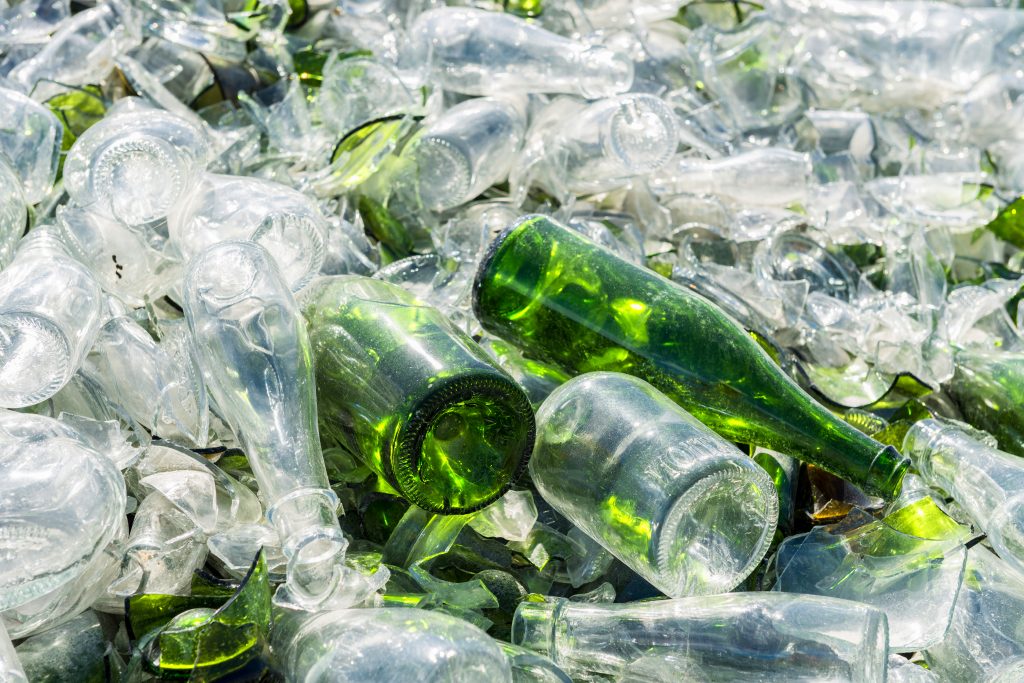This website uses cookies so that we can provide you with the best user experience possible. Cookie information is stored in your browser and performs functions such as recognising you when you return to our website and helping our team to understand which sections of the website you find most interesting and useful.
Defra to review high prices of glass in EPR scheme
By Arabella MilehamDefra is reported to be reconsidering the “eye-watering” initial fees for the extended producer responsibility (EPR) that it had published following backlash from the glass industry.

Although the actual rates for the first year of the extended producer responsibility (EPR) scheme for packaging will not be published until April 2025, last Thursday Defra published some initial estimate of fees for eight different types of packaging for the new scheme, which is being introduced next year.
The ultimate aim of the scheme is to boost recycling rates and reflect responsibility back to businesses, and Defra plans to modulate fees after the scheme is introduced to ensure packaging materials with the lowest environmental impact will be the least expensive for producers – but this won’t kick in until 2026.
The figures released so far were designed to give some clarity to businesses, and used data from the PackFlow Refresh 2023 reports to estimate future packaging usage. A more refined set of estimates, including modulated fee rates, are due to be published next month. However, it has been reported that Defra is considering making changes to the fee structure following a backlash from British Glass and other stakeholders.
According to trade publication Materials Recycling World, the trade organisation reacted to the scheme by calling for it to be delayed while the proposed fee structure is reassessed. British Glass claimed the way packaging materials will be charged – by weight rather than a unit-based approach – will put “a disproportionate burden on the glass industry compared to other materials”.
“These fees are much higher than expected, and British Glass fear implementation without revision could lead to significant job losses within the glass industry due to material switching,” Nick Kirk, technical director of British Glass was reported as saying.
In response, Defra is said to be reviewing the way it calculates the fees and will “consider” a volume-based approach versus using a weight-based approach. Figures on modulated fee rates will be issued in the autumn.
Emma McClarkin, CEO of the British Beer and Pub Association, said the publication of the fees reinforced its concerns about “the eye-watering additional costs brewers will be expected to bear from next year and impact on customers”, despite the sectors commitment to “working collaboratively to achieve circular economy goals”.
“These preliminary figures could add up to 7p on each of the 3.2 billion bottles of beer sold in the UK annually, which would mean up to £212m in total. This could be the equivalent of a 21% beer duty increase on these products and inevitably will lead to price increases for consumers,” she said.
“The Government must recognise the cumulative impact of their packaging reforms at the upcoming Budget and cut beer duty to safeguard Britain’s brewers and ensure the UK remains an attractive place for investment.”
The WSTA had earlier called for wine businesses and retailers to start factoring in additional costs of extended packaging regulations into their forecasts.
UK businesses who produce or use packaging have had to enrol in the Government’s Recycling Packaging Database (RPD), with companies with an annual turnover of £1 million or more – and responsible for more than 25 tonnes of packaging in 2022 – recording their data, while smaller organisations (with a turnover between £1m to £2m) need to start recording their data, which will need to be reported bi-annually from 2025.
Related news
Are 'sessionable' wines the answer to the duty increases?
Should the drinks trade be worried about a self check-out ban?

